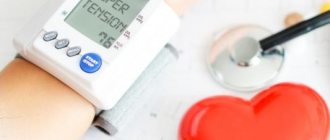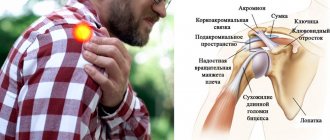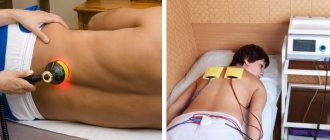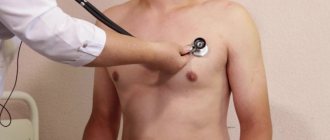- Causes
- Pathologies
- Diagnostics
- Treatment
- Our doctors
If your heart is beating fast, it is normal to feel it. In cases where the condition is caused by physiological factors, the state of health returns to normal on its own, without visiting a doctor.
Every person has experienced heart palpitations at one time or another. This condition can be either normal or pathological. Only a doctor can determine the exact cause after an examination, but you can independently determine whether you should rush to a specialist or not to worry.
Causes of increased heart rate
When assessing a person’s condition, one must take into account the pulse: is it elevated or normal. If your heart is beating fast, it is normal to feel it. Physiological reasons for this condition:
- strong excitement;
- age up to 7 years;
- exercise stress;
- fright;
- poisoning;
- drinking coffee and other tonic drinks.
In cases where the condition is caused by physiological factors, the state of health returns to normal on its own, without visiting a doctor.
The feeling of palpitations is also characteristic of some pathologies. Most often this is associated with endocrine, vascular and neurological disorders. In this case, a comprehensive diagnosis is required to determine the cause.
How is osteochondrosis related to tachycardia?
Today, every second inhabitant of the planet has problems with the spine. One of them is osteochondrosis, when the vessels of the spinal column are pinched, and the vertebrae sag and crumble. So it’s not far from a hernia. Therefore, it is important not only to make a correct diagnosis, but also to treat the cause of all problems.
How to determine the disease
Osteochondrosis is a destructive disease of the spine, when the vertebrae sag and the intervertebral discs become thinner. If previously it was believed that pathology occurs only in older people, after fifty years, that it was associated with a violation of the hormonal surge, now even twenty-year-old young people suffer.
The problem lies in a sedentary lifestyle, unbalanced diet, and lack of physical exercise. For treatment, in addition to medications, frequent walks are used, jogging is practiced at a convenient time of the day. Warm-up of the spine, in particular, bends and turns of both the cervical, thoracic, and lumbar regions. Proper nutrition. The food must contain calcium and phosphorus.
People who do not train the musculoskeletal system are at risk, since the muscular corset weakens, stooping develops, leading to curvature of the column, and this is how a problem arises.
We distinguish three types of disease:
- Cervical spine;
- Thoracic department;
- Lumbar.
The clinical manifestation is different, but the symptoms are approximately the same. This is soreness, muscle tension.
How it manifests itself
Each type has its own characteristics. Let us pay attention to the cervical and thoracic regions, since this is where tachycardia develops, around which this article is built. The curvature of the spine is to blame.
Cervical osteochondrosis is accompanied by headaches, migraines, pressure surges, tachycardia, and thoracic osteochondrosis disrupts the functioning of organs located in the thoracic region. Pain in the heart is frequent, it radiates to the shoulder blade and left arm, tachycardia occurs, the swallowing process is disrupted, shortness of breath appears, and breathing is difficult.
Since not everyone is aware that tachycardia and back pain are connected, they treat the symptoms, but not the disease itself.
Why does the heart beat faster?
Tachycardia is a consequence of the development of osteochondrosis in the cervical and thoracic spine. Often people do not understand that it is their back that needs to be treated. They think that the pulse increases only because the body is not trained. But, over time, the heart rate increases even with a sedentary lifestyle.
Tachycardia means an increase in heart rate, that is, the heart beats more than ninety beats per minute. What does the spine have to do with it? Let's look at it now.
Since back disease causes the discs between the vertebrae to wear out, the distance between them becomes smaller. When the disease is advanced, the distance is so small that the nerve endings and blood vessels are simply pinched. It is this process that causes back pain, as well as tachycardia.
Moreover, cervical osteochondrosis most often leads to increased heart rate, because this is where a large accumulation of blood vessels and nerve endings is located.
How to deal with the problem?
If your doctor has diagnosed you with tachycardia due to osteochondrosis, then you should be treated not only with medications, but also with physical exercise.
You can lower your heart rate by taking certain pills. We are talking about cinnarizine, piracetam, nitroglycerin, theobromine. To make your heart rate slower, you can take bisprolol or metoprolol. These drugs do not affect blood pressure in any way.
To address the root cause of the disease, you should think about your neck. So it would be right to make improvements in three areas:
- Loosen the spine, reducing the infringement;
- Establish blood circulation in the cervical region;
- Direct blood to the affected discs.
To do this, it is important to do massages, exercises, turns and head rotations.
Move more, taking breaks from sedentary work. Author: K.M.N., Academician of the Russian Academy of Medical Sciences M.A. Bobyr
Pathologies in which the heart beats strongly
If there are no physiological reasons, but the heart is pounding, you need to look for pathology. Conditions in which symptoms are observed:
- pathologies of the cardiovascular system: infection, heart disease; arrhythmia, cardiosclerosis, hypertension, heart failure, pericarditis;
- endocrine diseases: diffuse toxic goiter, hyperthyroidism;
- cardiopsychoneurosis;
- anemia;
- menopausal syndrome;
- neurosis.
When the heart is beating strongly and a person experiences chest pain and fear of death, you should immediately call an ambulance. This could be an attack of angina. It is quickly relieved with nitroglycerin, but the patient requires examination and medical supervision.
Why don't we usually feel our heartbeat?
Our brain is a mysterious and incredibly complex organ, the capabilities of which are hardly even half understood.
Every second the brain receives a huge number of signals from the senses and regulates the activity of all organs.
Usually a person does not feel a heartbeat, since the brain specially filters out such sound signals so that the hearing organs do not work “in vain”, distracting from really important sounds.
Physiologically, a person is able to hear the beat of his own heart, since the vessels pass close to the auditory nerve.
However, there are situations when a person begins to perceive the beat of his own heart and this causes inconvenience.
In addition to the discomfort from the rhythmic beating, the sensation of heartbeat has reasons that should be understood.
Diagnostics
If you have increased heartbeat, you should consult a therapist. He will refer you for an examination, with the results of which the patient will go to a specialist: a cardiologist, endocrinologist or neurologist. The list of diagnostic measures if the heart is beating strongly includes:
- general blood analysis;
- ECG;
- blood test for thyroid hormones;
- Ultrasound of the heart (EchoCG);
- daily monitoring of pulse and heart activity according to Holter;
- Ultrasound of the thyroid gland.
If the disease cannot be detected by laboratory and instrumental methods, a consultation with a psychiatrist may be required.
Read also: Heartache
First aid for yourself
Since such manifestations for the most part are still a reaction to some kind of emotionality, you should master methods of quickly calming yourself down. “The first thing to do when you’re nervous is to take a deep breath. This is a must to restore your breathing. This measure is used in case of an emotional explosion, if a person feels a reaction to stress in the form of heart palpitations. It is enough to spend a few minutes on this manipulation to feel much better.
Secondly, walking can be an excellent solution. You just need to move rhythmically for at least 5 minutes to calm your emotions and nerves. Measured, monotonous walking helps switch the nervous system from tension to a calmer mode. Another useful thing for emotional relief and recovery is to drink a glass of plain water. This is a great distraction - you just need to take a glass of water in small sips to get yourself in order. These “three pillars” are the main ones to dampen an emotional attack and calm the heartbeat.
If, over time, anxiety persists and thoughts do not calm down, you can, for example, add soothing tea. Brew it for yourself and distract the nervous system. But at this moment the heart should no longer beat too fast; this should not be done right away,” notes the cardiologist.
My heart trembled. When arrhythmia becomes deadly Read more
So there is no way to let a situation with an overly active heartbeat take its course. It should be kept under control and preferably in collaboration with a specialist. After all, many heart diseases can be asymptomatic and destroy the main muscle quite seriously even before it is detected.
Treatment of increased heart rate
Treatment tactics depend on the diagnosis. Treatment options:
- antiarrhythmic drugs are prescribed in the presence of cardiac arrhythmias;
- tranquilizers are required for neurosis;
- antibiotics are prescribed if there is a heart infection;
- nootropics and antispasmodics are needed for neurocirculatory dystonia;
- thyreostatics or radioactive iodine are indicated for thyrotoxicosis and hyperthyroidism;
- Hormone replacement therapy is carried out for menopausal syndrome;
- for anemia, treatment is prescribed taking into account its type: iron supplements, vitamin B12, etc.
If after 10–14 days of treatment a person does not feel better, further examination is carried out to determine the cause. Sometimes you just need to change the drug to a similar one due to the individual characteristics of the patient.
The feeling of palpitations can be considered normal in several cases. But if the condition recurs frequently and without provoking factors, you need to consult a doctor to find out the cause.
Dear patients! Remember that only a qualified doctor can make an accurate diagnosis, determine the causes and nature of the disease, and prescribe effective treatment. You can make an appointment with our specialists or call a doctor at home by calling 8-(4822)-33-00-33
Be healthy and happy!
When to see a doctor?
The cardiologist notes that you should contact a doctor without waiting for any additional signals from the body - just a rapid heartbeat will be enough to go to the appointment. “The doctor will prescribe an electrocardiogram to check the functioning of the heart, may suggest daily monitoring of the heart rhythm, and based on the results will make a decision. It is even possible that this is atrial fibrillation, which is not only treated with medications, but is also offered surgical intervention. By the way, it is good when a doctor suggests surgery, but patients often have a natural fear of this. However, it is worth understanding that surgical intervention also has certain contraindications, so it cannot always be carried out. Then they will use only drug therapy with special cardiac antiarrhythmic drugs,” says Olga Molchanova.
As a rule, if such a heartbeat was a one-time occurrence and does not occur again, there is no need to worry. But at the same time, there is no need to attribute the appearance of increased heart rate to emotions and fears all the time. After all, excessive emotionality and stress can become a trigger point for a pathological problem. And here again you need to go to the doctor.
Cardiologist Igor Zhirov: “Cardiological medications must be taken for a long time” Read more
Attention to body sensations is associated with anxiety
The increase in fear that Garfinkel observed in her experiment may be even greater in anxious people. Garfinkel's goal is to discover the relationship between interoceptive ability and mental disorder, and then use interoception as a tool to treat it.
According to Garfinkel, we still know very little about interoception.
Anxious people are sometimes overly focused on how their body feels. But it may be difficult for them to know whether they are paying increased attention to the heartbeat because they are anxious, or whether they are anxious because they are paying increased attention to the heartbeat.
Anxious people often believe that they have better interoceptive abilities. But it is not always the case. Garfinkel found that a discrepancy, either one way or the other, between one's perceived and actual ability to feel one's heartbeat can be a sure sign of anxiety. Garfinkel also found low interoceptive ability in people with autism.
“The connection between interoception and mental disorders has not received enough attention in modern science,” says Sahib Khalsa of the Oklahoma Brain Institute. But the situation is gradually changing, says Khalsa.
It is becoming increasingly clear that interoceptive deficits are observed in a wide range of disorders: depression, panic and somatoform disorders, eating disorders, substance use disorders and post-traumatic stress disorder.
Hyperthyroidism and leukemia
Thyroid dysfunction is one of the most common causes of cardiac dysfunction. Teenagers, pregnant women and other people experiencing hormonal imbalance experience strong pounding in the chest, accompanied by sweating and general weakness. But the functions of the thyroid gland can be more seriously impaired.
Hyperthyroidism is one of the causes of arrhythmia. Everyone whose heart beat unevenly experienced arrhythmia.
The development of the disease is stimulated by an increase in thyroid hormones, and when treating hyperthyroidism, they reduce its content in the body. Specialized medications are prescribed, after a course of which improvement should be observed.
With proper treatment, tachycardia caused by hormonal imbalance goes away completely. If the heart is still beating rapidly, they move on to more drastic methods, such as surgery.
Leukemia is a serious disease with a fatal outcome. With it, disturbances are observed in the hormonal background, in the number of red blood cells and iron in the blood. The disease is so rare that it should not be considered as a possible cause.
This type of disease is accompanied by enormous symptoms, and a single heartbeat, even if it is very rapid, is not enough to detect it.
Ventricular tachycardia (VT)
VT refers to an abnormally rapid heartbeat. The source of such a rhythm may be an ectopic focus in the myocardium of the right or left ventricle. Typically, the cause of ventricular abnormal pacemakers is diseases of the heart muscle (coronary heart disease, arrhythmogenic dysplasia of the right ventricle, etc.). In VT, the heart does not pump blood as efficiently as it does in normal sinus rhythm. The rapid rhythm of contractions prevents the ventricles from filling completely between individual heartbeats. As a result, the volume of blood circulation in the body decreases.
With VT, symptoms such as dizziness, fainting, presyncope, and loss of consciousness occur. For most patients, VT is considered a very dangerous rhythm, which can lead to the death of the patient.
Floating and meditation can help you learn interoception
Interoception also explains the effectiveness of certain practices. There is evidence that floating helps with anxiety and depression, with even one hour of this procedure providing short-term positive effects. Perhaps the reason is that during floating, exteroception is temporarily turned off and attention is focused on internal sensations.
Mindfulness and other types of meditation also force you to concentrate on your body. However, the disadvantage of meditation is that it does not help you become more aware of your body. Garfinkel believes that training and measuring interoception can make meditation practice more effective.
What to do if you feel your heart beating
If you experience an unpleasant sensation, you must first do the following.
- adjust your diet . Often the cause of a rapid heartbeat is an unbalanced diet, excessive consumption of alcohol, coffee, and fatty foods.
- stop smoking . A bad habit has a negative impact on the body as a whole. The future belongs to non-smokers! If this is not the first time you have felt your heartbeat, it's time to quit smoking.
- conduct an audit of the medications used . It is possible that you are taking medications or dietary supplements that are incompatible with each other. Another possibility is side effects from medications.
- limit physical activity . Sports should be done correctly, avoiding overwork. If you cannot distribute the load correctly, you should seek the help of a professional trainer.
- find a quiet hobby . Quiet hobbies help reduce nervous tension.
This is interesting: Bipolar disorder: signs, diagnosis, treatment
Prevention of myocardial problems
To prevent your heart from bothering you with loud pulsations, it is important:
- try to maintain a normal weight, as obesity overloads the myocardium and blood vessels;
- even if you follow a diet, include vitamins and foods containing magnesium and potassium;
- train your heart through sports (walking, running, cycling), but not to the point of exhaustion;
- If you have a cold, do not self-medicate, do not carry it on your feet;
- do an ECG once a year;
- be less nervous.
Strong pulsation is not a disease, but a manifestation of a problem. And you can’t ignore it, even if it bothers you from time to time. The sooner you take care of yourself, the higher the chance of restoring your previous quality of life.
I feel my heart beating with a normal pulse: rare causes
If a person feels his heart beating with a normal pulse, this may be due to the following factors:
- recent physical activity, as well as lack of sleep;
- stress, that is, sudden and intense joy or negative emotion;
- an abundance of cigarettes smoked, coffee or alcohol drunk;
- overeating, especially when the food was fatty or spicy;
- low hemoglobin, characteristic of dieters, pregnant women and with pathologies of the stomach and intestines with impaired absorption of nutrients;
- deficiency of potassium in the body;
- neurotic state, that is, chronic stress;
- food or chemical poisoning;
- infections, other diseases accompanied by fever;
- taking certain medications that have side effects.
You can add to this list the diagnosis “vegetative-vascular dystonia”, which Russian doctors like to make. In fact, it often hides a neurosis or one of the undetected cardiovascular and endocrine pathologies.
Diagnostic procedures
A regular pathological condition requires consultation with a cardiologist.
Regular feeling of a strong heartbeat with a normal pulse requires contacting a cardiologist. The specialist finds out what other symptoms are troubling the patient and prescribes manipulations that help establish an accurate diagnosis, such as:
- electrocardiography;
- diagnostics of the heart and other internal organs using ultrasound;
- general laboratory blood test;
- hormone analysis;
- daily monitoring of heart rate and blood pressure.
To find out the cause of the feeling of palpitations with a normal pulse, it is often necessary to undergo a magnetic resonance or computed tomography scan. If necessary, additional consultation is carried out with an endocrinologist, psychotherapist, psychiatrist and other highly specialized doctors. Only after identifying the source of the disorder, the doctor selects the optimal treatment or prescribes lifestyle correction.
Additional symptoms
In such a condition, a person’s heart not only beats quickly, but also other pathological signs are observed that indicate the disease. The patient complains of the following symptoms:
- dyspnea;
- painful attacks in the head;
- dizziness;
- feeling of lack of oxygen and suffocation;
- pallor of the epidermis;
- chest pain;
- problems with sleep, which soon disappears altogether;
- I constantly feel weak throughout my body.
When a person has a normal pulse, but a palpitation is felt, he becomes anxious, imaginary, constantly worried and worried about possible death.











